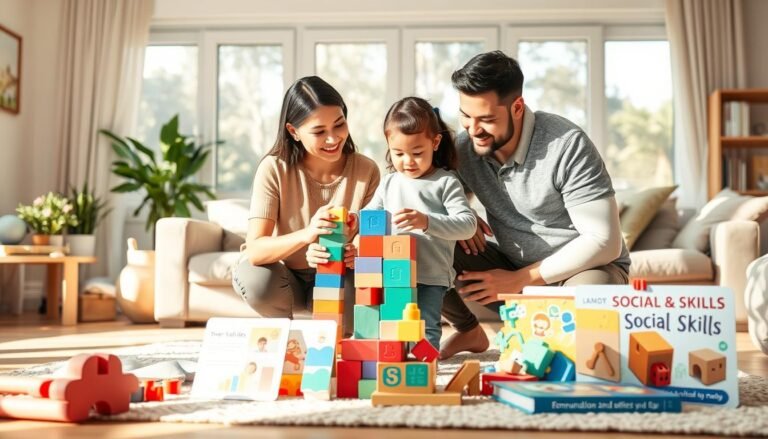
Introduction
In an increasingly interconnected world, it may seem counterintuitive that many adults struggle with separation anxiety. While often associated with childhood, the emotional turbulence of saying goodbye or being apart can affect us well into adulthood. Beyond the Bond: Navigating Adult Separation Anxiety addresses the silent yet profound impact of this condition on relationships, personal development, and mental well-being. Whether it’s a spouse leaving for a trip, a friend moving away, or a child heading off to college, the idea of separation can trigger an emotional upheaval that seems insurmountable. This article aims to delve deep into the nature of adult separation anxiety, providing unique insights, real-world examples, and practical strategies for overcoming it.
Understanding Adult Separation Anxiety
What Is Adult Separation Anxiety?
Separation anxiety in adults might manifest as a persistent fear or reluctance to be apart from loved ones. While it’s normal to feel sad or anxious when facing separation, those afflicted by this condition may experience excessive worry that disrupts everyday life. The anxiety can be triggered by a variety of events such as:
- Moving to a new city
- The end of a significant relationship
- Starting a new job
- A loved one going on a trip
Symptoms to Recognize
Beyond the Bond: Navigating Adult Separation Anxiety requires a clear understanding of its symptoms. Common indicators include:
- Persistent whimpering of being alone
- Physical symptoms like nausea or headaches
- Social withdrawal
- Over-dependence on the presence of a partner or friend
Real-life Case Study: Mark’s Journey
Mark, a 35-year-old professional, had always been close to his family. When his sister decided to move across the country, Mark found himself spiraling into a state of depression and anxiety. He faced sleepless nights and dreadfully worried thoughts about losing her. Recognizing that he needed help, he sought therapy, where he was guided through cognitive-behavioral techniques to manage his feelings.
Analysis
Mark’s case highlights the critical link between relationships and mental health. His journey illustrates how adult separation anxiety isn’t just about the act of being separated but rather about underlying fears of abandonment and loss. Effective interventions can make a significant difference.
The Emotional Impact of Separation Anxiety
Fear of Abandonment
At the heart of adult separation anxiety often lies a deeply rooted fear of abandonment. This fear can stem from various life experiences, including:
- Childhood trauma
- Previous relationship difficulties
- Loss of a loved one
Long-term Effects on Relationships
Unaddressed, adult separation anxiety can have long-term repercussions. Partners might feel suffocated, while friends may grow distant due to the anxiety-ridden behaviors of the affected individual.
Real-life Case Study: Emily and Jake
Emily and Jake had been dating for several years, but Emily’s anxiety about Jake going on a work trip led to constant arguments. Feeling overwhelmed, Jake struggled to constructively navigate Emily’s anxiety. They eventually decided to seek couples therapy, where both learned how to communicate openly about their feelings.
Analysis
Emily and Jake’s experience underscores the importance of communication and mutual understanding in relationships. Through professional guidance, many couples can learn techniques to handle anxieties and learn how to maintain healthy attachments even in times of separation.
Strategies for Coping with Separation Anxiety
Establish Open Communication
One of the most crucial steps in Beyond the Bond: Navigating Adult Separation Anxiety is fostering open channels of communication. Sharing feelings about anxiety, both for the anxious individual and their loved ones, may decrease stress and build stronger bonds.
Develop Healthy Coping Mechanisms
Adopting routines and developing hobbies can provide a sense of stability. Here are a few proposed strategies:
| Strategy | Description |
|---|---|
| Mindfulness Meditation | Practicing mindfulness to increase self-awareness and reduce anxiety. |
| Journaling | Writing down feelings to help process emotions and thoughts. |
| Quality Time | Making the most of time spent together can help build stronger bonds. |
| Professional Help | Seeking guidance from mental health professionals. |
Real-life Case Study: Sarah Finds Her Way
Sarah, a 28-year-old teacher, manifested extreme anxiety when her best friend moved to another city. Instead of succumbing to her emotions, she began journaling about her feelings and started a new hobby; painting. This not only distracted her but allowed her to process her feelings about the change.
Analysis
Sarah’s proactive approach to handling her anxiety exemplifies the importance of leveraging positive coping skills. By focusing on herself and her passions, she was able to manage her feelings while nurturing her emotional well-being.
Building Stronger Bonds through Separation
Resilience during Separation
While separation anxiety can be challenging, it can also pave the way for personal growth. By working through these feelings, individuals often come out more resilient and better equipped to handle future challenges.
Encouraging Independence
Part of navigating adult separation anxiety is learning to embrace independence. Both parties in a relationship can engage in activities apart, which can create a sense of balance and trust.
Real-life Case Study: Alex and Maria
After years of being inseparable, Alex and Maria were faced with a six-month long-distance relationship. Initially, Alex struggled with anxiety over Maria’s absence, but he began taking courses and focusing on personal goals. This period of separation ultimately strengthened their relationship, as they learned to appreciate their individuality.
Analysis
Alex and Maria’s continuous efforts to maintain their connection while fostering independence illustrates the importance of adaptability in relationships. This, combined with shared experiences, can result in a stronger bond when reuniting.
Conclusion
Separation is an inevitable part of human experience, and adult separation anxiety is a common yet often overlooked issue. Through understanding, communication, and the right coping strategies, individuals can navigate these emotionally tumultuous times effectively. The journey articulated in Beyond the Bond: Navigating Adult Separation Anxiety is not solely about overcoming anxiety, but also about embracing the growth that comes from facing one’s fears.
As you contemplate your relationships and navigate your own separations, remember: it’s okay to experience anxiety, but with the right tools and support, it can be transformed into a pathway to greater understanding, emotional resilience, and personal fulfillment.
FAQs
1. What are the common signs of adult separation anxiety?
Common signs include persistent worry about separation, physical symptoms (like headaches), and over-dependence on others. It’s crucial to recognize these signs early for effective management.
2. How can I support a partner or friend with separation anxiety?
Open communication is key. Let them express their feelings without judgment, and encourage professional help if necessary. Offering reassurance can also ease their worried mind.
3. Are there specific therapies that help with separation anxiety?
Cognitive Behavioral Therapy (CBT) is one effective approach. It helps individuals alter negative thought patterns and develop healthier coping mechanisms.
4. Can exercise help alleviate separation anxiety?
Yes, engaging in regular physical activity releases endorphins, which can significantly improve mood and reduce anxiety. Physical health and mental health are deeply interconnected.
5. Is it possible for someone to overcome adult separation anxiety completely?
While many individuals can significantly reduce their symptoms through therapy, coping strategies, and personal growth, some may still experience bouts of anxiety during significant life changes. Continuous work on personal development is crucial.
By embracing the strategies discussed in Beyond the Bond: Navigating Adult Separation Anxiety, you too can transcend the immediate emotional upheavals and create a more fulfilling, resilient life. Your relationships and personal journeys deserve to flourish, and understanding separation anxiety is an essential step in that direction.

















